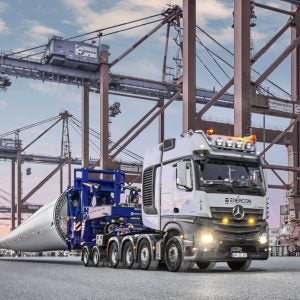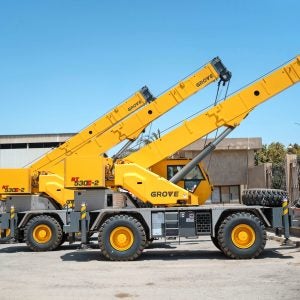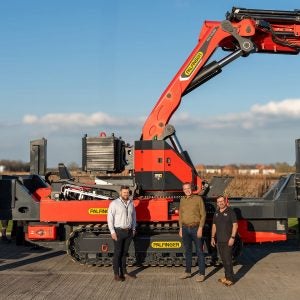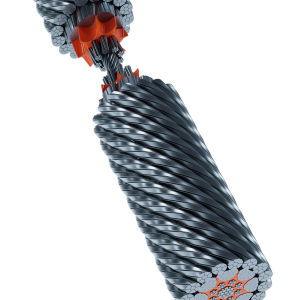TEREX Corporation announced on 17 May that it has entered into an agreement with Siemens to acquire Demag Mobile Cranes for $150m – about $50m to $80m below book value.
Once the deal is complete, Terex will restructure to recreate Terex Cranes, an $800m worldwide business to be headed once again by Fil Filipov.
The deal follows many months of industry speculation and comes just weeks after Manitowoc announced that it was buying Grove. Many, including Demag employees themselves, thought that Manitowoc would buy Demag which was put up for sale by its parent company, Siemens, last year.
Demag had revenues of about $360m last year from its all terrain and crawler cranes. Of this, 23% came from Germany, 44% from other European countries, 13% from the USA and 20% from the rest of the world. It is in the USA, in particular, that Terex plans to look for growth.
The deal, which is still subject to regulatory approval, is expected to close at the end of the second quarter or early in the third quarter of 2002.
‘The acquisition of Demag is an excellent opportunity for us,’ said Terex chairman and chief executive officer, Ron DeFeo. ‘From a strategic perspective it improves our position in the all terrain crane market which has been a growing market category over the past several years, and gives us a product offering that fills gaps in the current Terex crane product line. When combined with our rough terrain and truck crane businesses, it will give us a product offering in the mobile telescopic crane market second to none.’
DeFeo continued: ‘Demag also has a leading market position in the 300t to 1,600t lattice-boom crane category which complements our existing product offering nicely and enables us to offer our customers a full line of lattice boom cranes with lifting capacities from 60 tons to 1,600 tons. The combination of Demag and Terex will create a worldwide crane company with one of the broadest geographic and product offerings in the industry.
‘We expect the acquisition to add $360m in pro forma annual revenues,’ he said DeFeo said that there were ‘many, many cost reduction opportunities’ with a minimum of $20m of savings already identified.
DeFeo also pointed out that Terex had now acquired a leading all terrain and crawler crane manufacturer, plus a significant tower crane business through the Comedil and Peiner acquisitions in 1999, for a total sum of about $180m. ‘And we got more for our money than others who paid more,’ he added, in a clear reference to Manitowoc that has spent about $570m in the past two years acquiring Potain and Grove.
‘The Demag acquisition provides Terex with access to leading technology and high-end product lines,’ said Fil Filipov.
Filipov continued: ‘Demag is known in the marketplace for its product innovation, quality and excellent after sales service. Demag will provide Terex with an all terrain product offering that will enable us to compete effectively in the European marketplace, which is the largest all-terrain market. It also positions us to compete in the growing North American all terrain market, where we think there is a real opportunity to be aggressive and grow share by leveraging Terex’s strong market presence in mobile telescopic cranes in combination with Demag’s outstanding technology and customer care.’
He said: ‘The acquisition brings with it three production facilities, two in Zweibrücken, Germany and one in Pecs, Hungary, with more than 460,000m2 of production capacity. We have targeted $20m in cost savings through the outsourcing of non-core activities, streamlining of the production process and improvements in purchasing. We will also be looking for ways to better leverage our German organisation and take advantage of low cost production capabilities in Eastern Europe.’
A statement issued by Demag Mobile Cranes said that the Demag brand would be kept and the basic product range and business strategy would be unchanged.
Demag executive board member Bernd Düser said: ‘We have thrived by focusing on innovation and technology leadership as our primary corporate goals. And we have also set standards in terms of quality and service, particularly in the after-sales sector.
‘We intend in the future to concentrate particularly on expanding this side of the business and further enhancing our customer focus. The merger with Terex will give us a powerful boost, and here I am referring particularly to the improved opportunities now available to us on the US market.’






